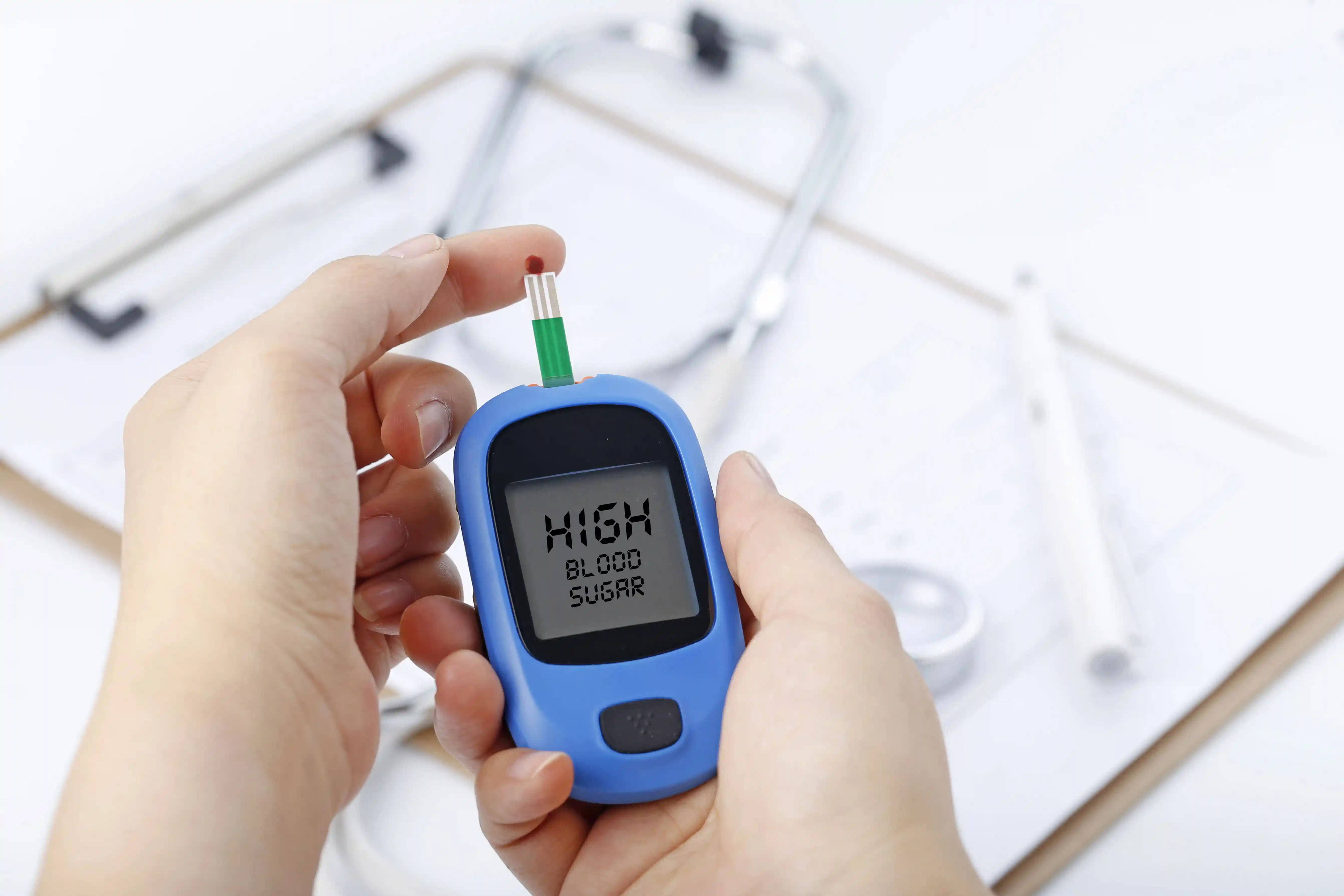What is Hyperglycemia?
Hyperglycemia refers to high blood sugar levels that occur when there is an excess of glucose in the bloodstream. It is a common condition in individuals with diabetes but can also occur in those without diabetes. Hyperglycemia can have serious health implications, as it can lead to complications such as heart disease, kidney problems, and nerve damage. Managing blood sugar levels through lifestyle changes, medications, and regular monitoring is essential for preventing and controlling hyperglycemia.
Understanding Hyperglycemia and its impact on the body
Hyperglycemia occurs when there is an excess of glucose in the bloodstream, leading to high blood sugar levels. This condition can have significant impacts on the body. Prolonged hyperglycemia can damage blood vessels, leading to complications such as heart disease and kidney problems. It can also cause nerve damage, leading to peripheral neuropathy. Managing blood sugar levels through proper treatment and lifestyle changes is crucial for preventing these complications.
Symptoms and causes of Hyperglycemia
Symptoms of hyperglycemia can include increased thirst, frequent urination, fatigue, blurred vision, and slow-healing wounds. It is primarily caused by a lack of insulin or an inability of the body to effectively use insulin. Other factors that can contribute to hyperglycemia include stress, illness, and certain medications. Regular monitoring of blood sugar levels and adherence to a diabetes management plan can help prevent and manage hyperglycemia.
Lifestyle Changes for Managing Hyperglycemia
To effectively manage hyperglycemia, lifestyle changes play a crucial role. A healthy diet low in carbohydrates and high in fiber, along with regular exercise, can help control blood sugar levels. Incorporating stress management techniques like meditation or yoga can also be beneficial. It is important to consult with a healthcare professional and create a personalized plan for managing hyperglycemia.
Importance of diet and exercise in controlling blood sugar levels
A healthy diet low in carbohydrates and high in fiber is essential for managing hyperglycemia. It helps regulate blood sugar levels and prevents spikes. Regular exercise plays a key role in controlling blood sugar by improving insulin sensitivity and promoting weight loss. Incorporating both diet and exercise into daily routines can significantly help in managing hyperglycemia.
Alternative therapies and stress management for Hyperglycemia
Alternative therapies such as acupuncture, yoga, and meditation have shown promise in managing hyperglycemia. These practices can help reduce stress levels, which in turn can help regulate blood sugar levels. Incorporating stress management techniques into daily routines, along with regular exercise, proper diet, and medication, can provide a holistic approach to managing hyperglycemia. It is important to consult with a healthcare professional before trying any alternative therapies.
Medications for Hyperglycemia Treatment
Medications play a crucial role in managing hyperglycemia. Common medications include oral hypoglycemic agents, such as metformin, sulfonylureas, and thiazolidinediones, which help lower blood sugar levels. Other options include injectable medications like GLP-1 receptor agonists and SGLT-2 inhibitors. Insulin therapy may be prescribed for more severe cases. It is essential to work closely with a healthcare professional to determine the most effective medication and dosage for individual needs.
Common medications for Hyperglycemia and their effects
Common medications for hyperglycemia include metformin, sulfonylureas, thiazolidinediones, GLP-1 receptor agonists, and SGLT-2 inhibitors. Metformin improves insulin sensitivity and reduces glucose production in the liver. Sulfonylureas stimulate insulin release from the pancreas. Thiazolidinediones help improve insulin action in the body. GLP-1 receptor agonists promote insulin secretion and slow down digestion. SGLT-2 inhibitors increase glucose excretion through urine. These medications can effectively lower blood sugar levels and help manage hyperglycemia when used as prescribed.
Insulin therapy and other prescription options
Insulin therapy is a common treatment for individuals with hyperglycemia who have insufficient insulin production or have difficulty using insulin effectively. Insulin is typically injected subcutaneously and helps regulate blood sugar levels. Other prescription options for hyperglycemia include medications such as meglitinides, alpha-glucosidase inhibitors, and DPP-4 inhibitors. These medications work by different mechanisms to help control blood sugar levels. It’s important to work with a healthcare professional to determine the best prescription option for each individual’s specific needs.
Monitoring and Prevention of Hyperglycemia
Regular monitoring of blood sugar levels is crucial for individuals with hyperglycemia. This can be done using self-monitoring devices such as glucometers. The frequency of monitoring should be determined by a healthcare professional. Prevention of hyperglycemia involves maintaining a healthy lifestyle, including a balanced diet, regular exercise, and managing stress. It is important to follow a personalized treatment plan and make necessary lifestyle changes to prevent complications associated with hyperglycemia.
Blood sugar monitoring techniques and frequency
Regular monitoring of blood sugar levels is essential for individuals with hyperglycemia. This can be done using self-monitoring devices such as glucometers. The frequency of monitoring should be determined by a healthcare professional based on the individual’s specific needs and treatment plan. It is important to maintain a log of blood sugar readings to track patterns and make any necessary adjustments to the treatment regimen.
Tips for preventing Hyperglycemia complications
Proper management of hyperglycemia can help prevent complications. Some tips include maintaining a healthy diet, exercising regularly, closely monitoring blood sugar levels, and taking medications as prescribed. It is important to communicate any new symptoms or concerns with a healthcare provider and follow their guidance. By maintaining a proactive approach, individuals can reduce the risk of long-term complications associated with hyperglycemia.
Advanced Treatment Options for Hyperglycemia
In severe cases of Hyperglycemia, advanced treatment options may be necessary. One option is the use of insulin pumps, which deliver a continuous supply of insulin throughout the day. Another option is the use of continuous glucose monitoring systems, which provide real-time blood sugar readings. In some cases, surgical interventions may be considered to address underlying causes of Hyperglycemia. These advanced treatment options can help individuals with Hyperglycemia achieve better blood sugar control and reduce the risk of complications.
Insulin pumps and continuous glucose monitoring systems
Insulin pumps and continuous glucose monitoring systems are advanced treatment options for individuals with severe cases of Hyperglycemia. Insulin pumps deliver a continuous supply of insulin throughout the day, providing better blood sugar control. Continuous glucose monitoring systems provide real-time blood sugar readings, allowing individuals to make immediate adjustments and prevent highs and lows. These advanced technologies empower individuals to manage their Hyperglycemia more effectively and reduce the risk of complications.
Surgical interventions for severe cases of Hyperglycemia
In severe cases of Hyperglycemia, surgical interventions may be considered as a treatment option. One example is bariatric surgery, which can help improve blood sugar control by promoting weight loss and reducing insulin resistance. This procedure is typically recommended for individuals with obesity and uncontrolled diabetes. However, it is important to note that surgical interventions are typically reserved for those with severe Hyperglycemia who have not responded to other treatments.
Conclusion
In conclusion, managing hyperglycemia requires a combination of lifestyle changes, medications, monitoring, and advanced treatment options. By following a healthy diet, engaging in regular exercise, and effectively managing stress, individuals can better control their blood sugar levels. It is also important to work closely with healthcare professionals to determine the most appropriate medication and monitoring techniques. In severe cases, surgical interventions may be considered. With proper management and support, individuals with hyperglycemia can lead healthy and fulfilling lives.
Key takeaways for managing Hyperglycemia effectively
Proper management of hyperglycemia involves a combination of lifestyle changes, medication, and monitoring. Some key takeaways for managing hyperglycemia effectively include maintaining a healthy diet and engaging in regular exercise to control blood sugar levels. It is important to work closely with healthcare professionals, monitor blood sugar levels regularly, and take prescribed medications as directed. Stress management techniques and alternative therapies can also be beneficial. With proper management, individuals with hyperglycemia can lead healthy lives and prevent complications.
Resources and support for individuals with Hyperglycemia
There are several resources and support systems available to help individuals with hyperglycemia manage their condition effectively. These resources include diabetes education programs, online communities, and support groups. National and international organizations like the American Diabetes Association and Diabetes UK also offer valuable information and support for individuals with hyperglycemia. These resources can provide education, guidance, and a sense of community for those facing the challenges of managing hyperglycemia.



